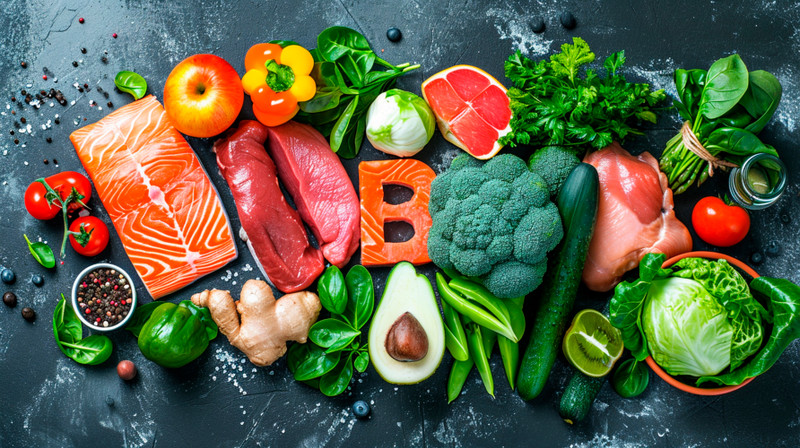When your energy levels dip, the solution might not just be about getting more sleep or consuming more caffeine. Often, it’s about ensuring your body has the nutrients it needs to efficiently produce energy at the cellular level. B-vitamins, a group of essential nutrients, play a critical role in converting the food you eat into usable energy for your cells. Without adequate B-vitamins, the energy production process can falter, leaving you feeling fatigued and sluggish.
The Role of B-Vitamins in Cellular Energy Production
Energy in the body is generated through a complex biochemical process that occurs within the mitochondria of cells. This process, called cellular respiration, converts macronutrients like carbohydrates, proteins, and fats into adenosine triphosphate (ATP), the energy currency of the body.
B-vitamins act as coenzymes, enabling enzymes to carry out the chemical reactions required for this process. Each B-vitamin has a unique role in energy metabolism, and together, they form a powerhouse team to fuel your body.
1. Vitamin B1 (Thiamine)
Thiamine is essential for breaking down carbohydrates into glucose, the primary fuel for energy production. It’s particularly critical in the first step of the energy production pathway, known as glycolysis.
Key Functions:
- Converts glucose into ATP.
- Supports nerve function and muscle coordination.
Food Sources:
Whole grains, pork, legumes, and sunflower seeds.
2. Vitamin B2 (Riboflavin)
Riboflavin helps convert carbohydrates, proteins, and fats into usable energy. It’s also a key player in the electron transport chain, a stage in cellular respiration where the majority of ATP is produced.
Key Functions:
- Supports the production of energy-rich molecules like FAD (flavin adenine dinucleotide).
- Protects cells from oxidative stress as an antioxidant.
Food Sources:
Milk, eggs, almonds, spinach, and fortified cereals.
3. Vitamin B3 (Niacin)
Niacin plays a vital role in metabolism by forming NAD (nicotinamide adenine dinucleotide) and NADP (nicotinamide adenine dinucleotide phosphate), molecules essential for energy transfer in cells.
Key Functions:
- Helps break down macronutrients for energy.
- Supports over 400 enzymatic reactions in the body.
Food Sources:
Chicken, fish, peanuts, and mushrooms.
4. Vitamin B5 (Pantothenic Acid)
Pantothenic acid is crucial for the synthesis of coenzyme A, a molecule that helps metabolize fatty acids and carbohydrates for energy production.
Key Functions:
- Breaks down fats and carbohydrates into usable energy.
- Supports the synthesis of hormones and neurotransmitters.
Food Sources:
Avocados, broccoli, whole grains, and yogurt.
5. Vitamin B6 (Pyridoxine)
Vitamin B6 is essential for protein metabolism and the production of neurotransmitters that influence mood and energy levels. It also helps release stored energy from glycogen in the liver.
Key Functions:
- Aids in breaking down proteins into amino acids.
- Converts glycogen into glucose for energy.
Food Sources:
Bananas, chicken, potatoes, and fortified cereals.
6. Vitamin B7 (Biotin)
Biotin is often referred to as the “beauty vitamin” for its role in skin, hair, and nail health, but it’s also integral to energy production. It helps metabolize carbohydrates, proteins, and fats.
Key Functions:
- Supports the conversion of food into glucose.
- Plays a role in the synthesis of fatty acids.
Food Sources:
Egg yolks, nuts, seeds, and sweet potatoes.
7. Vitamin B9 (Folate)
Folate is essential for DNA synthesis and repair, making it critical for cell growth and energy production. It also helps in the production of red blood cells, which transport oxygen throughout the body.
Key Functions:
- Supports the formation of healthy red blood cells.
- Aids in protein metabolism and cellular function.
Food Sources:
Leafy greens, oranges, lentils, and fortified grains.
8. Vitamin B12 (Cobalamin)
Vitamin B12 is crucial for the formation of red blood cells and the maintenance of nerve cells. It also helps convert homocysteine into methionine, a molecule essential for energy production.
Key Functions:
- Helps form red blood cells that deliver oxygen to cells.
- Supports nerve health and DNA synthesis.
Food Sources:
Meat, fish, dairy products, and fortified plant-based foods.
Signs of B-Vitamin Deficiency
B-vitamin deficiencies can result in a range of symptoms, often related to low energy and poor metabolism. Common signs include:
- Fatigue and weakness.
- Difficulty concentrating or brain fog.
- Muscle weakness or cramps.
- Irritability or mood changes.
- Anemia (from low levels of B12 or folate).
If you’re experiencing these symptoms, consider reviewing your diet or discussing B-vitamin supplementation with a healthcare provider.
Supporting Cellular Energy with B-Vitamins
To ensure your body has the B-vitamins it needs for optimal energy production:
- Eat a Balanced Diet: Incorporate a variety of whole, unprocessed foods that are rich in B-vitamins.
- Choose Fortified Foods: Many cereals and plant-based milk options are fortified with B-vitamins.
- Consider a Supplement: If your diet is lacking or you have absorption issues, a high-quality B-complex supplement can help fill the gap.
A Note from Us
B-vitamins are essential for turning the food you eat into the energy your body needs to thrive. By understanding their roles in cellular energy production and ensuring you get enough through diet or supplementation, you can maintain steady energy levels and support overall health.
At EarthTurns, we offer a variety of high-quality B-vitamin supplements to help you stay energized and focused. Whether you’re looking for a B-complex formula or targeted support like B12, our carefully curated selection has you covered.

